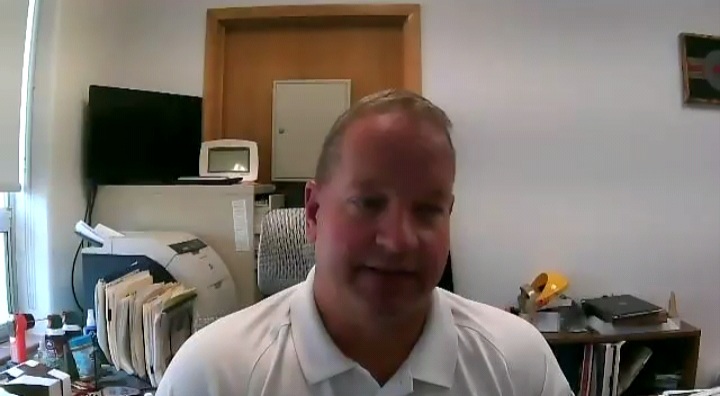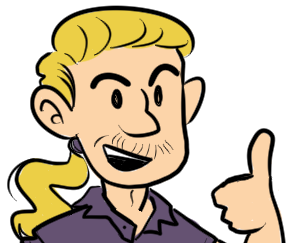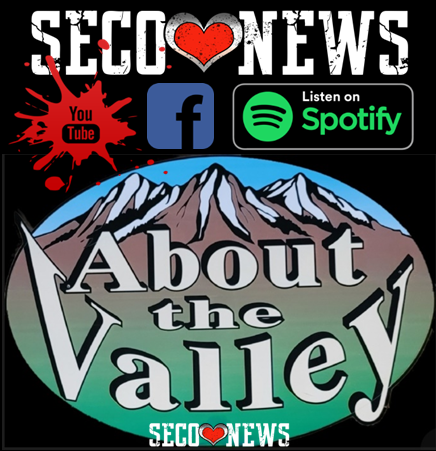La Junta Fire Department Community Update LJCC June BLT

Description: La Junta Fire Chief Brad Davidson updated the business community on the La Junta Fire Department during the La Junta Chamber of Commerce Business Lunch and Talk hosted over Zoom on June 24th.

La Junta Fire Department Community Update LJCC June BLT
The La Junta Chamber of Commerce hosted their monthly Business, Lunch and Talk Thursday June 24th via Zoom. Chamber Board Member Julie Worley organized and conducted the meeting. La Junta Fire Chief Brad Davidson presented during the meeting.
Davidson: Thank you. Thanks for everybody and thanks for the invite on this. I'm pretty passionate about this I like to talk about our department.
For a lot of you who don't know we, cover 150 square miles to include the towns of Swink and Cheraw. Not only do we provide just fire service but we also run the ambulances as well. So, with a staff of 14 full time people and supplemented with volunteers from our community; we've managed to run about 3000 calls a year with about 85 to 87% of that being medical, so there's days we're out all the time there's days that we don't go out at all so it just depends when it happens.
As everybody knows, we've got our dry conditions coming up. Our weather has really been out of the normal for for our area, I believe, granted it's been hot, but eight inches of rain in four days made a big difference, but now as you can tell weeds and grass are really starting to grow so we're starting to kind of get into the to our fire season. If you've been following the state as well the western slope right now is in critical condition. They had five new fire starts yesterday to about 20 starts in the last couple of days so it's getting pretty critical out there now.
As everybody knows, I had to make a decision to cancel the Fourth of July fireworks show. But again, like I tried to explain to people back in February and March when I get the drought reports and stuff I have to make a decision then, and it's just not like we can pick up the phone and order fireworks, you know, you know in just a few days but it's a decision I have to make and I'll stand behind.
They will be able to buy local fireworks, and I encourage everybody to do it safely and shoot them off safely we'll be doing some Facebook posts on that they'll be able to start selling this weekend.
So, you know, my goal, I've been back for about two years now, and my goal was to get back out and get the community support, back on to the fire department.
I know they went through a rough patch, but that's behind us. New leadership, new roles, new ideas and we're back into the community that's what I want everybody to know that once you call us and you need help with something more than likely we're going to be there to help, and my staff knows that.
We couldn't do this without the staff that I have, and the support from our city council, our support from our La Junta Rural Fire District Board, and to be able to update a lot of our equipment.
I know people were talking about, "Wow you're buying new fire trucks." Well we were behind the time on things and it was time to get some equipment caught up, and I was blessed enough to have that support and get it taken care of and we're on the right track now.
Good things are happening every day, every day we come into work. So that's just kind of what we do.
A lot of people are always asking me if you get cats out of trees. No, no, not really, I don't really cats will come down, and that's what I tried to explain to people but, you know, you name it we do it.
We have been out lately, installing some smoke detectors in some elderly people's homes who couldn't get up on ladders, and I send my guys out to do it because it just helps them out so that's kind of everything in the nutshell I mean you name it we do it so I'll answer any questions or anything that anybody has.
Worley: So Brad, what is the outline of the Rural Fire Protection District because it goes way further than La Junta, Correct?
Davidson: Right, the district actually encompasses from the Bent County Otero county line to the east, all the way to road 22 to the west, and then north of Cheraw, almost up to highway 286 and then down south, quite a ways. We do have a lot of unincorporated area down there that we helped the sheriff's office, kind of cover for fires.
If you didn't know the sheriff is actually by state statute the county fire marshal for all incorporated areas, so places that don't pay into a fire district. So we do assist with them on wildfires and things like that but we kind of tag team and work it all together so it's 150 square miles.
Worley: Okay so we have a question here, are any of the firemen going to assist firefighting in the west part of Colorado?
Davidson: There's a program that we have to status our equipment, and my first primary goal is to make sure our area is covered first. I am going to list one of my tenders which carries 1800 gallons of water. I'm going to make that available statewide, and then, if we get selected or we get asked to go. I'll be able to send one person on it, which will be able to help them out, in turn, we get money back and get paid for going through the federal government. So it's a good thing for the rural district, and good thing to help people out, but I still have to make sure that I have enough staff here to cover our district first.
Worley: Right, so now can you tell us who's on the Rural Fire board?
Davidson: Yeah, my rural fire board president is Everett Babb, other members on the board are, Bob Fowler, Eric Hannigan, who represents that kind of area of our district over around Swink. Marvin Schlagle, and then Mike Martin is from Cheraw as our representative from there. And then, also, we have our representative on the legal side who's Nathan Schultz. So that's, that's the board. We meet once a quarter and they just kind of take that side. The ambulance service falls underneath the rural districts, or the rural board and so they, that's how we do our money that way but we also get, as well as property tax from everybody in my district.
Worley: Okay, so every time the Rural Fire vehicles go out does the ambulance go out also?
Davidson: It depends, yes so if it's a type of fire I like to have an ambulance though as well to make sure that we have an ambulance there for our staff, where people do get called back in and cover for additional calls. Lately it seems like we've been running anywhere between five and eight calls a day.
Worley: A Day?
Davidson: Yeah, a day, so we're out and about quite a bit. The other day we had seven calls in 12 minutes, and we managed, we covered everything so we do a lot of shuffling around but we get things covered.
Worley: I had no idea you'd have seven or eight calls a day.
Davidson: Yeah, there's some days we have one; most of the days we average three to five but our main overall average is eight.
Worley: Wow. So does anybody else have any questions for Brad? Well I guess not. Well, thank you very much for sharing with us Brad. Now I know more about the Rural Fire Protection District, so thank you.
Davidson: Thank you for letting me come on, this has been great.
Worley: All right, well, we'll talk to you later then.
Davidson: Thanks, everybody have a good day.
Follow SECO News on Facebook.
Subscribe to the SECO News YouTube Channel.
Press releases Sponsor





.png)


.png)




.png)



.png)


.png)







